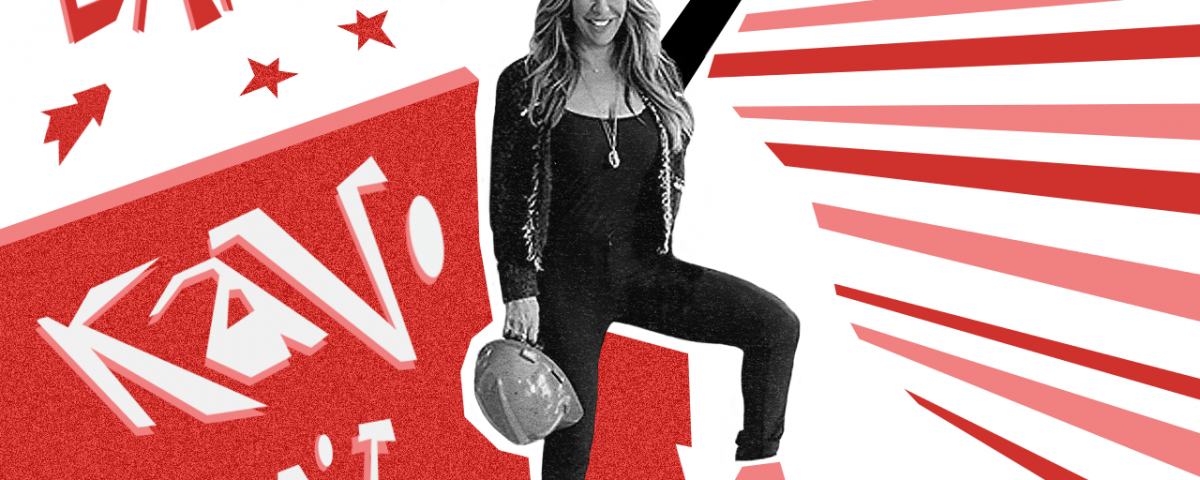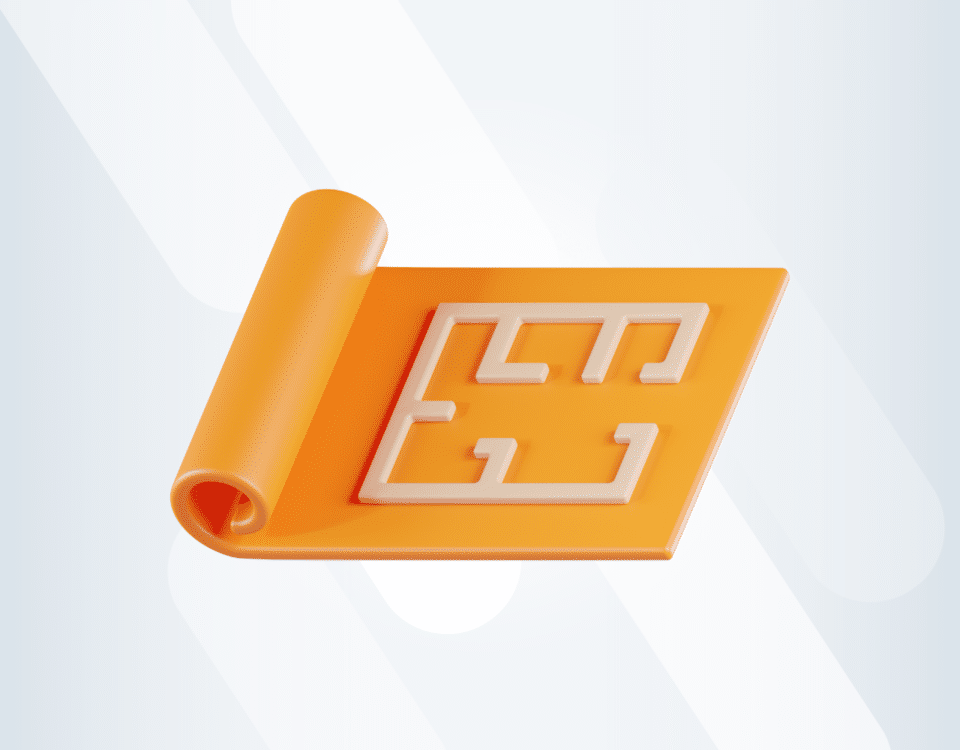
Construction Tips, News & Best Practices
Barbara Kavovit - Beauty & the Brains from the Bronx
She went through a lot to build her career in this male-dominated industry but she made it! Here’s her story and her encouragement for other women.
Bronx native Barbara Kavovit, CEO and founder of Evergreen Construction, was Crain’s “100 Most Influential Women in Business” by the time she was 30. Constantly breaking barriers in NYC’s construction industry, she is a trendsetter and role model for aspiring woman contractors, paving the way for future generations of women in construction who want to pursue a career in the industry.
She built her business from scratch and plans to grow it into an empire. After her graduation, (BS degree in finance) she founded and became a CEO of Anchor Construction. With hands-on industry experience in the projects she ran, she realized the challenges facing women in their own homes. This inspired her next business and brand: barbara k! - a line of ergonomically-designed tools and kits marketed specifically for women.
Barbara Kavovit is not afraid to speak about challenges in the male-dominated industry. She recently published her first novel “Heels of Steel’’: a novel about the queen of New York construction” in June 2019 - with a current Amazon customer review rating of 4.6 out of 5 stars. “Heels of Steel '' tells the tale of a woman (Bridget Steele - based on Barbara and her own life story) trying to build the biggest skyscraper in Manhattan, despite facing fierce opposition from her male peers.
The novel shares the story of how Bridget’s (Barbara’s) destiny came tumbling down on her when she was mugged in an elevator at the age of 10. Coming home, her father started giving her defense lessons that very same day; how to take a punch or deliver a blow. One piece of advice she got was that no holds are barred (biting, hair pulling, low blows) as long as she manages to get away safe and sound. It is always a battle for survival! In addition, her father taught her how to build (starting with Lego houses) and fix things. At first, she used these skills for odd jobs to make some money, but it grew so much on her that she wanted to make it into a career. She felt a sense of fulfillment in seeing the finished product.
She had business cards made with 60 dollars at Minute Press Man. She was always resourceful and made sure to find the right carpenters/electricians/plumbers for the job. Barbara would stand outside the shopping center and go straight up to women exiting the place, with all their groceries, and tell them she could, “help them with any home repair that they had to do that they couldn’t get done”. She became the middleman!
“I think the way you build a company is the way you build your life, and everything is a blueprint. So if you know how to follow a blueprint, which I never did when I started, then you understand the different stepping-stones and the different steps it takes to achieve whatever that vision is that you have. It’s all in a blueprint. And everything that you do in your life, in your home really, transcends to everything you do outside your home. So if you can take care of things, if you can be a self-sufficient woman inside your home, then you could have that vision to do whatever you want to do. And that’s why I think it’s so important to be able to have tools and know-how to use the tools in life”.
The moment she got her hands on a bigger project - the full renovation of a three-story house - she was faced with hiring more people and managing all the experienced men that never before had been led by a woman (a 20-year-old one at that!). ‘’A couple of men had simply turned and walked out when they saw her; one had immediately suggested that she suck his unmentionable parts, and more than a few had condescendingly sneered through her questions, their eyes bouncing between her lips and her chest like they were watching an X-rated tennis match”. Bridget (Barbara) managed to impose herself and lead the team to success, finishing the project ahead of time. She was always the first one in and the last one out, inspecting every nook and corner. This is how she would discover “her superpower: noticing the smallest bits and pieces of a job and never letting them go undone”. This project also taught her, or maybe made her realize, that “if you (as a woman) are going to make it in this business, and be considered equal, you are going to have to be twice as tough, five times as competent and ten times as smart as any man”.
Bridget’s (Barbara’s) father taught her when she was afraid to go big for fear of not knowing how to negotiate, that - “You can build anything if you take it piece by piece”. She took this saying with her to get into the construction world and made it her own. She was not surprised that it took time and patience to break through - “most of the construction bosses in Manhattan had the same story. Nepotism. Five of the largest companies were at least third generation. The industry was almost impossible to break into if you were an outsider”.
Barbara is a self-made woman, who started her construction business on her own: with ingenuity, charm, and a very strong will to penetrate the male-dominated industry. She did not come from wealth, she does not have a background in the industry, nor did she have the right connections to succeed, but… succeed she did! She joined “an organization called Professional Women in Construction” formed in the ‘90’s by women in the steel industry. Barbara underlined that having a mentor is key in your development in the field - "Find a mentor that believes in you, that is going to take the time to help teach you. And if you can't find that person, I mean, nowadays there's certainly organizations out there that you can find. You have the world at your fingertips."
Throughout her book “Heels of Steel”, Barbara underlines, through clear stories, how much sexism she had to endure in the industry. Being a young, good-looking woman basically puts a target on your back.. They did not want to hire her, they only wanted to date and lead her on forever. She had to stay strong, play safe and smart! "Male chauvinistic people that are in this business, they still exist. Because they've been handed down through their grandparents to their fathers, and now the sons are in it. The mentality still exists of that “construction is no place for a woman’’. But I'm here to prove that it is, and I'm taking projects away from them."
Barbara Kavovit has the sound conviction that every woman should be self-sufficient and independent from her male counterparts - “no woman should ever be in a position where she isn’t self-sufficient in her home”. Women should be able to take their lives in their own hands and steer themselves, with passion, to their dream destination. If someone is passionate about what they do and focused on their goal, they will see nothing else and will ultimately achieve it!
When it comes to giving advice for future generations of women contractors, and even for women in general, Barbara thinks that knowing your strengths (and weaknesses) is key. “Don't try to be something you're not. Knowing yourself is the best way to target what you're going to be good at. Know how to stand up for yourself. Know what your worth is—and as long as you're confident and you know your product, you know yourself”.
Barbara truly knows that women are brilliant in whatever they do: once they set their minds on something, they achieve it! They are detail-oriented, thorough, conscientious, and they are more aware of Health and Safety practices. No need for bravado, they just do the job! - and that is what makes them perfect for the construction industry and beyond.
You might also like
February 29, 2024 • 7 min read
Utilizing the human-first approach to construction projects to drive higher results.
July 3, 2023 • 6 min read
8 Best Construction Drawing Management Software (2023): A Comprehensive Guide
Find all the information you need about the construction drawing management software tools available on ...June 14, 2023 • 6 min read
The 11 Best PlanGrid Alternatives (2023)
Looking for a great alternative to PlanGrid software? Check out the 11 best construction software tools ...June 14, 2023 • 4 min read
How to win at CIS 340 and make taxes a breeze
CIS 340 is a legal obligation for contractors. But getting it right isn’t straightforward. Want ...






